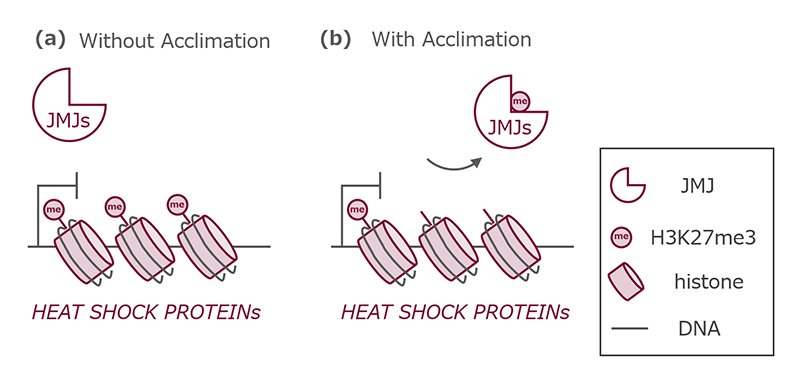2023.01.04
How to beat the heat: Memory mechanism allows plants to adapt to heat stress
Plant Stem Cell Regulation and Floral Patterning ・ Associate Professor ・ Nobutoshi Yamaguchi
Acclimation to high temperature increases plants’ tolerance of subsequent lethal high temperatures. Although epigenetic regulation of plant gene expression is well studied, how plants maintain a memory of environmental changes over time remains unclear. Here, we show that JUMONJI (JMJ) proteins, demethylases involved in histone H3 lysine 27 trimethylation (H3K27me3), are necessary for Arabidopsis thaliana heat acclimation. Acclimation induces sustained H3K27me3 demethylation at HEAT SHOCK PROTEIN22 (HSP22) and HSP17.6C loci by JMJs, poising the HSP genes for subsequent activation. Upon sensing heat after a 3-day interval, JMJs directly reactivate these HSP genes. Our findings of an epigenetic memory mechanism involving histone demethylases may have implications for environmental adaptation of field plants.

Fig.1 Removal of H3K27me3 in response to heat
Upon exposure to a triggering heat, plants are acclimatized. Three red circles represent H3K27me3. JMJ proteins keep H3K27me3 at lower levels on HSP genes. The acclimatized plants respond to recurring heat faster or more strongly than non-acclimatized plants do.
Nobutoshi Yamaguchi NAIST Edge BIO, e0008. (2023).
